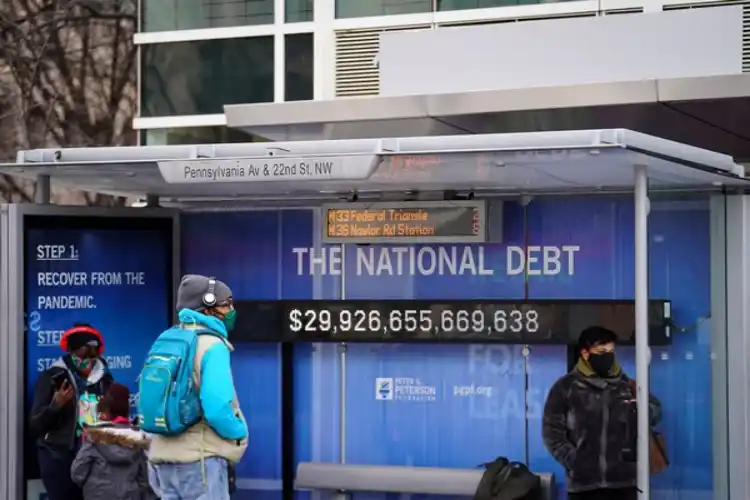
New York
America's national debt on Tuesday hit another sobering milestone surpassing $30 trillion for the first time.
Total public debt outstanding is now above $30 trillion, according to Treasury Department data, reported CNN. The national debt has skyrocketed in recent decades, driven up in part by the 2008 financial crisis and then the pandemic.
Government borrowing accelerated during the COVID-19 pandemic as Washington spent aggressively to cushion the economic blow from the crisis. The national debt has surged by about $7 trillion since the end of 2019.
The latest debt milestone comes at a delicate time as borrowing costs are expected to rise, reported CNN.
After many years of rock-bottom interest rates, the Federal Reserve is shifting into inflation-fighting mode. The Fed is planning to launch its first series of rate hikes since 2015. Higher borrowing costs will only make it harder to finance that mountain of debt.
"It doesn't mean a short-term crisis, but it does mean we are going to be poorer in the long term," said David Kelly, chief global strategist at JPMorgan Asset Management.
Interest costs alone are projected to surpass $5 trillion over the next 10 years and will amount to nearly half of all federal revenue by 2051, according to the Peter G Peterson Foundation, an organization focused on raising awareness to the fiscal challenge.
The federal government now owes almost $8 trillion to foreign and international investors, led by Japan and China. Eventually, that will need to be paid back, with interest.
"That means American taxpayers will be paying for the retirement of the people in China and Japan, who are our creditors," said Kelly.
About two-thirds (67 per cent) of Americans in a CNN poll in December said government spending is a major problem for the nation's economy, below rising costs for food and everyday items (80 per cent said that was a major problem) and roughly on par with the pandemic (65 per cent said COVID is a major problem).
